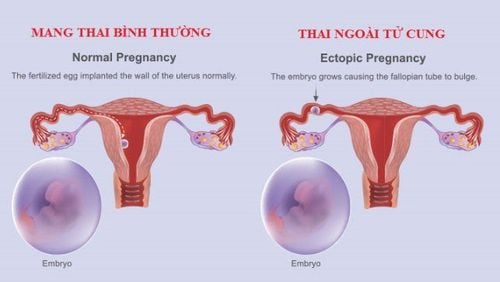This is an automatically translated article.
Menstrual cycle is a set of repeated physiological changes in the female body under the control of the sex hormone system and necessary for reproduction.
In women, the typical menstrual cycle occurs every month between puberty and menopause. Red lights are a normal part of a natural cyclical process that occurs in healthy women between puberty and late reproductive years.
Menstruation is also a sign that a woman is not pregnant.
During the menstrual cycle, a sexually mature woman's body releases one egg (sometimes two). Before ovulation, the endometrium, which covers the surface of the uterus, builds up in a synchronized fashion. After ovulation, the endometrium changes to prepare for a fertilized egg to implant and form a pregnancy.
The menstrual cycle is controlled by changes in the levels of sex hormones in the body. The direct effects on the menstrual cycle are estrogen and progesterone. The rise and fall of these two hormones are the main driving force behind the menstrual cycle in women
Knowing how to calculate your menstrual cycle will help you plan proactively to take care of yourself as well as anticipate be the problems that may occur during the red light day.
So how to calculate the menstrual cycle? According to expert advice, a menstrual cycle is counted from the first day of menstruation until the first day of the next period. Here are the steps to calculate how many days your menstrual cycle is:
Track your menstrual cycle by ticking the day the red light appears. This will be the start of your menstrual cycle. Continue to track your menstrual cycle until the next red light and mark again. This is the end of the menstrual cycle. From step 1 and step 2, you will get the start and end date of your period, from which to calculate your menstrual cycle. Track your menstrual cycle continuously for 6 months, you will be able to calculate your average menstrual cycle, from which you can calculate the next red light day to visit. Many people mistakenly believe that the period of menstruation is an absolutely safe period, having sex during this period will not get pregnant. This is incorrect, it is still possible to get pregnant during the days of menstruation, although the possibility is low, especially in women with irregular periods, the chance of getting pregnant during the days of menstruation is higher. Also, you may ovulate before your period stops or within a few days after the bleeding stops, and sperm can stay in your body for up to 3 days, so having sex during your period can lead to infertility. to conception.
Please dial HOTLINE for more information or register for an appointment HERE. Download MyVinmec app to make appointments faster and to manage your bookings easily.













